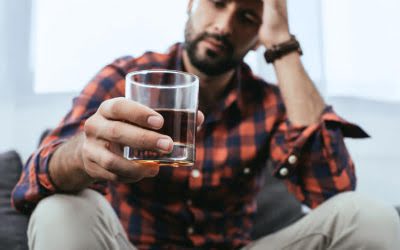Content
- Naltrexone (ReVia)
- Groups for family and friends
- Challenges and Solutions of Adding Medications Treatment to Specialty Addiction Treatment Programs: A Review With Suggestions
- Tips for Selecting Treatment
- Optimizing Outcomes by Patient–Treatment Matching
- What Over-the-Counter Alcohol Withdrawal Medications Can Help Stop Drinking?
Many of the effects of drinking every day can be reversed through early intervention. Alcohol detox isn’t easy and not everyone can do it on their own. That is why alcohol detox and alcohol withdrawal treatment is administered by medical professionals. Individuals who are dependent on alcohol often suffer from negative side effects such as physical http://novostinauki.ru/news/19551/ dependence, anxiety, depression, confusion, organ damage, strained relationships and difficulty meeting major responsibilities. Making the decision to quit drinking can help alleviate these symptoms by improving mood and lessening the physical side effects. Alcohol use disorder is a medical condition involving frequent or heavy alcohol use.

Residential treatment programs typically include licensed alcohol and drug counselors, social workers, nurses, doctors, and others with expertise and experience in treating alcohol use disorder. The withdrawal phase of recovery affects each person differently. For instance, some people may experience minor withdrawal symptoms that subside within a few days. Others, however, may face serious symptoms that can last a lifetime. Since there’s no telling how the body will react during the withdrawal process, it is highly recommended that individuals check into a rehab facility where their health can be monitored.
Naltrexone (ReVia)
The standard dose is 50 mg daily, but a multisite study demonstrated that 100 mg daily also was effective when combined with medical management (Anton et al. 2006). Research is needed to address the optimal use of medication therapy for the treatment of alcohol use disorders and for treating the broader spectrum of unhealthy alcohol use, from non-dependent risky drinking to alcohol dependence. This is especially true given the major scientific advances in pharmacotherapy that have been made over the past 60 years.
You don’t feel the “high” pleasure sensation that makes you want to drink. Disulfiram (brand name Antabuse) is another medicine that is sometimes used to treat alcoholism. Naltrexone does not make you feel sick if you drink alcohol http://jacketedwall.ru/?page=25 while taking it. Medicines are usually used with talk therapy and support groups to treat alcohol use disorder. The medicines are usually taken once people have stopped drinking to help keep them from starting to drink again.
Groups for family and friends
A 2017 research review found that acupuncture helped with alcohol cravings and withdrawal. Behavioral health therapies are widely used for helping people stop drinking. Thanks to virtual healthcare, you can see a therapist from the comfort of your home. A 2017 http://stalkeruz.com/ten-chernobylya/kto-znaet-paskhalki-i-prikoly-v-stalkere.html?page=2 research review did not find that this therapy was more effective than other forms of relapse prevention. Mindfulness therapies have been used to keep people from relapsing. Relapse is when someone resumes drinking in unhealthy ways after a period of recovery.
Always consult your healthcare provider to ensure the information displayed on this page applies to your personal circumstances. The sooner you recognize there may be a problem and talk to your healthcare provider, the better your recovery chances. Your treatment setting will depend on your stage of recovery and the severity of your illness. You may need inpatient medical (hospital), residential rehabilitation (rehab), outpatient intensive therapy or outpatient maintenance. You may want to take a family member or friend along, if possible.
